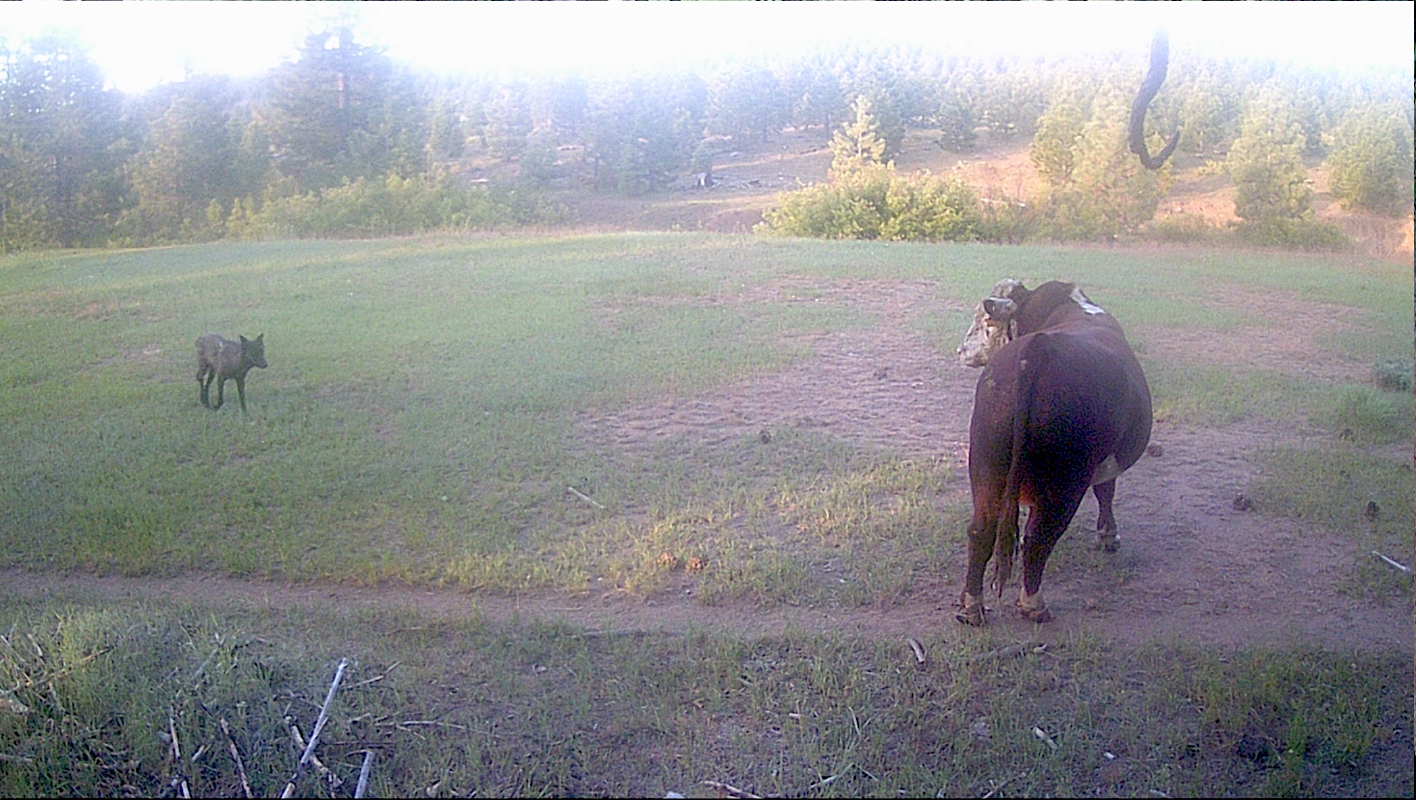Ranchers in Northern California are seeing more of their livestock being killed by wolves, and they are about to get some help over the summer from a dedicated strike team.
In order to combat the growing problem, the California Department of Fish and Wildlife (CDFW) is deploying a strike team that will partner with federal, state, and local agencies. Their goal will be to reduce livestock attacks by gray wolves in Siskiyou County and the Sierra Valley, including both Sierra and Plumas counties.
After receiving permission from landowners, the task force will work on the ground day and night, seven days a week, supporting ranchers whose livestock was harmed and deterring attacks without killing any wolves, according to the CDFW.
Because wolves are listed as an endangered species under state and federal law, killing a wolf is banned and carries a maximum penalty of one year in prison and a $100,000 fine, unless it was in self-defense.
The strike team will use radio telemetry and real-time information given to them by local ranchers to find the wolves, some of which are collared, and work to push them away from livestock. They’ll also remove carcasses to decrease factors attracting wolves to the ranches.
“Livestock producers who volunteer to participate in the program and take any necessary training will have a plan tailored to their unique property and livestock needs to help mitigate future conflict through nonlethal methods,” the CDFW said in a statement. “These plans may include a variety of tools, including livestock management, additional barriers, predator aversion devices, or injurious harassment.”
The department states that the task force is necessary because of the recent depredation of livestock in the region. There were 18 livestock killings from October 2024 to December 2024, according to CDFW data. This year, there were 16 between January and March.
The agency has confirmed that 163 cattle and six sheep were killed or injured by wolves since 2011.
CDFW has reported higher-than-normal levels of livestock depredations by gray wolves from the Beyem Seyo pack in the Sierra Valley in the past year. The pack’s presence in Plumas County first became known in May 2023 after CDFW received several public reports of wolf tracks.
In Siskiyou County, the Whaleback pack is responsible for most of the carnage, according to the county’s wolf liaison, Patrick Griffin, who investigates wolf attacks on behalf of hunters. The Whaleback pack’s alpha male was originally collared by the Oregon Department of Fish and Wildlife in February 2020 and entered California in November 2020, he said.
The livestock killings have been ongoing since 2021, according to Griffin.
“The ranchers are very vigilant throughout, checking their cattle a lot, and they find carcasses. The cause of death is then investigated to determine if it was a wolf kill or not,” he said.
“Recently, the depredations have decreased a little bit. It seems like they could be more on natural prey, because we aren’t seeing very many recent depredations.”
In surrounding counties, the incidents seem to be on the rise, Griffin said.
He told The Epoch Times that there have been 80 livestock killings by wolves in the county and that the killings usually happen at night.
“It’s unfortunate that they’ve lost so many, but it’s kind of the way it’s been here for the last four or five years,” Griffin said.
The strike team, which began its work on June 9, is scheduled to work through the summer months.
“This program is still in its early stages, so there will be a need to learn by doing together,” Plumas County Supervisor Dwight Ceresola said in a statement. “But this is a good start, and I appreciate that.”
Sierra County Supervisor Paul Roen also praised the new strike team, saying: “I am thankful the state and county can do something together. We are hopeful that this additional presence will reduce the immediate losses and provide CDFW with a clear understanding of the day-to-day challenges ranchers have faced for months.”













